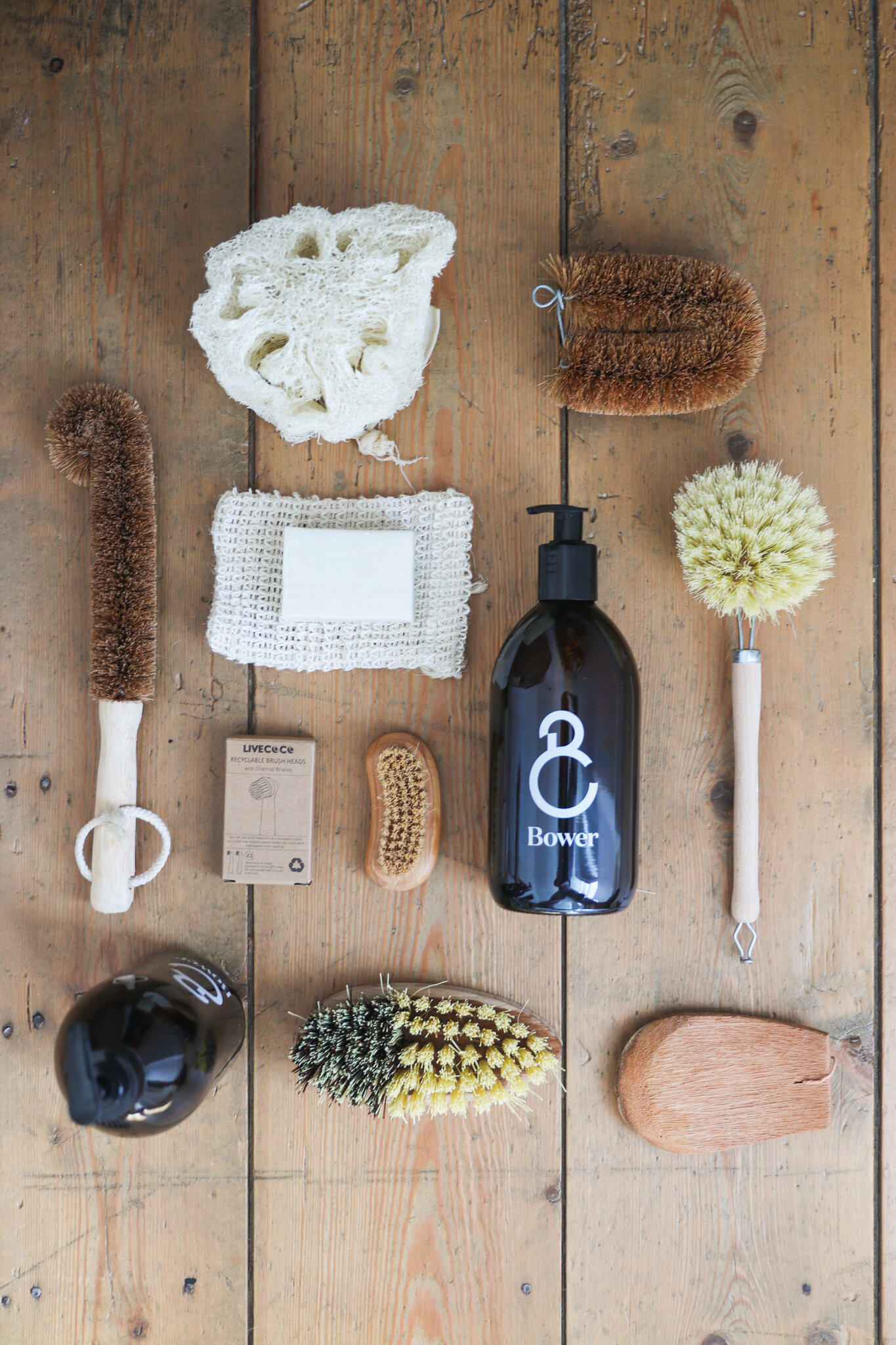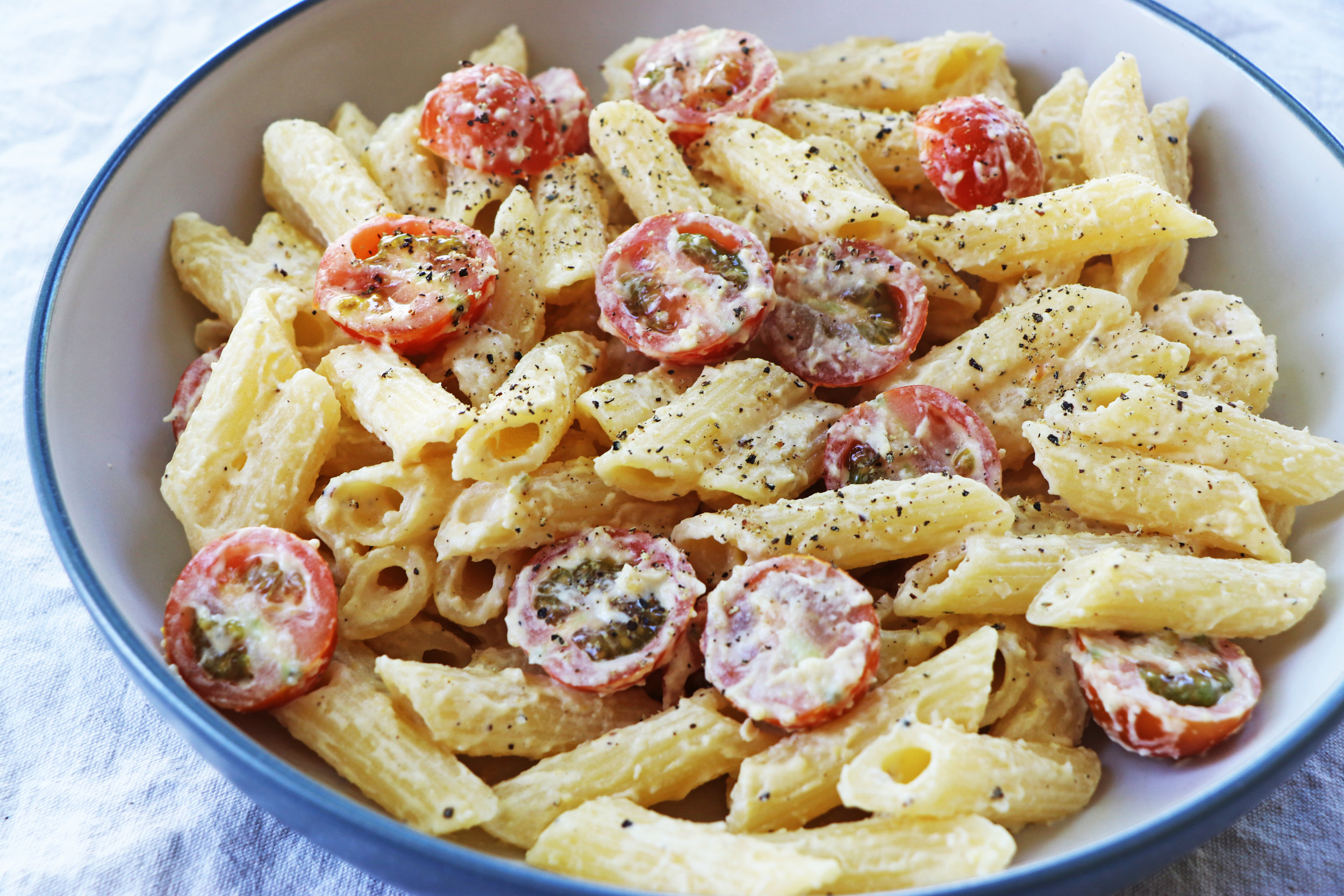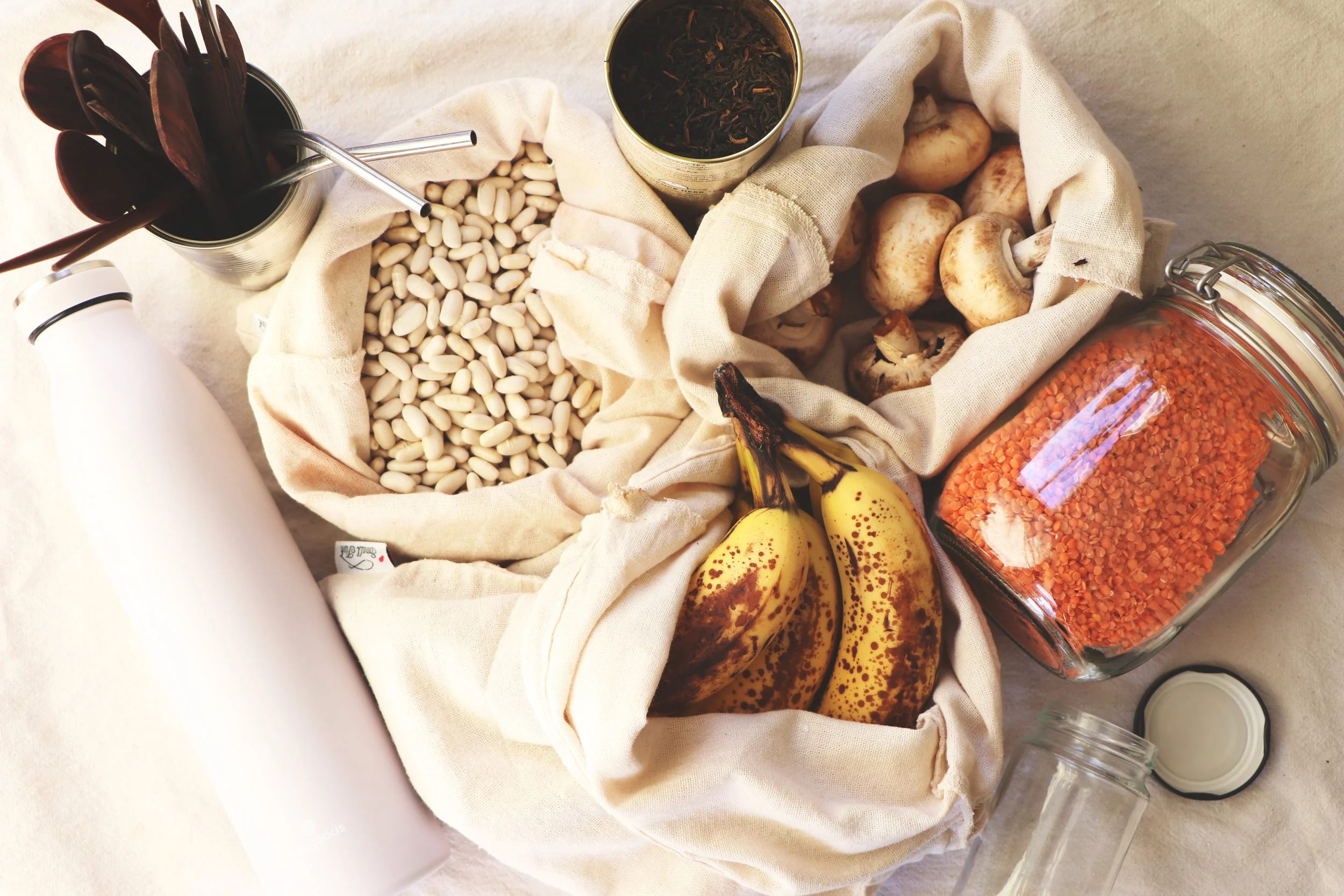25 Surprising Ways To Save Money By Going Green
There is a common misconception that when you try to be more eco friendly, it is going to end up costing you a fortune. When the reality is actually the opposite. Many eco-friendly choices are also budget-friendly choices. They happily go hand in hand. So with this list I wanted to share some of the top ways that you can live a greener way of life, while also saving money!
1. Give up bottled water
Not only is bottled water ridiculously expensive, but the amount of plastic usage is through the roof. Marketing has lead us to believe that we need to spend our well-earned money on expensive bottles of water in order to be healthy, when the reality is, tap water is still drinking water. And surprisingly, bottled water is usually no better than tap water. You can get yourself a water filter or distiller to ensure your drinking water is fresh and safe, and most likely better for your health than the majority of bottled water on the market. You can then get yourself a reusable water bottle (this is my one) to use when you're out and about. Sadly, most plastic bottles are not recycled and end up in landfill, or worse, in our oceans. So save some cash, while saving the environment, and ditch the bottled water.
2. switch to a 100% green energy provider
Switching to an energy provider like Octopus Energy, who offer 100% green electricity, can make a huge difference. You automatically cut back your carbon footprint by using only wind and solar energy. As a company, Octopus Energy have won awards for their customer service and have been voted Supplier of the Year. Which? say Octopus Energy is the only energy supplier they recommend.
The surprising thing is that you will save up to £240 compared to the big energy suppliers like British Gas, E.ON and Npower. It completely smashes the myth that green energy is more expensive.
The final surprising thing is that switching to Octopus Energy is really easy. You can get a quote and sign up on their website in less than 2 minutes with this link, enter your details and they’ll do the rest. You can go green and save money in no time.
3. turn it off
When your devices are fully charged, unplug them. When you're not using your TV, switch it off. When you leave a room, turn off the light. Sometimes we can get a little lazy switching off our devices and forgetting to unplug them, but over time, this can make a big difference to your electricity bill, and to the environment.
4. recharge
Invest in a set of rechargeable batteries for the gadgets, remotes or smoke detectors in your home. They're easy to use and save money and waste. Rechargeable batteries keep dead ones out of landfill and will save you money constantly repurchasing new batteries over time.
5. go digital
Save trees and save money. Use online banking, save important files and photos on your harddrive, switch to email subscriptions over paper ones, or sign up to streaming services like Netflix, Spotify or Audible. These simple switches end up being more affordable in the long run, for example some banks are now charging for paper statements, and save on physical items like paper, books or DVDs eventually ending up in landfill.
6. cold wash
Clothes no longer need to be washed in hot water in order to get clean. There are plenty of eco-friendly brands suggesting to wash your clothes on a colder cycle that will save on your bills, as well as the environment.
7. cycle or walk
Instead of driving to work, cycle or walk instead. Not only will you be getting some time outdoors and moving your body, but over time you'll save on transport costs and vehicle emissions. Not to mention maintenance, insurance and tax is far cheaper or non-existent for a bike or when walking compared with a car.
8. eat less meat
Not only is meat expensive, but its damaging to the environment. In fact, reducing your meat consumption will dramatically reduce your carbon footprint. Incorporating more vegan and vegetarian meals during your week will cut some costs, while helping out the earth, and the animals.
9. seasonal fruit and veg
And when you're buying food for your vegan and vegetarian meals, try purchasing seasonal fruit and veg. Buying in season means you're purchasing food at the peak of its supply. It therefore costs less for the farmer to harvest, and less time and distance to get to your grocery store. In turn, you get to enjoy food that is at its tastiest, healthiest and cheapest! Win win!
10. bring your own bag
In the UK, we now have to pay for plastic bags at the shops. Which is a great incentive to encourage all of us to bring our own bags! Less plastic bag usage means less plastic in landfills and our ocean causing harm to our earth and its animals.
11. sink water aerators
Install a sink water aerator to your sink to save water! These appliances will control the amount of water flowing out of tap, saving your water bill and saving the amount of water you're using overall. Plus less heating will be used when you're using hot water.
12. use a drying rack for your clothes
In the UK, this is the norm, but I know elsewhere, like the US, lots of people are still using tumble-dryers or dryers to dry their clothes. Get a clothing rack, or clothing line, to dry your clothes instead as dryers are not only very expensive to run, but use up a lot of energy.
13. take less showers
There is a common misconception that we need to be showering every day, when the reality is it isn't even the healthiest thing for our bodies to be constantly washing off all of its natural oils with hot water and harsh soaps . But thats besides the point. Having less showers, or shorter ones at least, will save on a lot of money and energy. I take one long shower a week to wash my hair, and have very quick showers the rest of the week, usually post-gym.
14. think before your buy
I've said it before and I'll say it again, think before you buy! Lowering your consumption of things is one of the biggest ways you can reduce your carbon footprint, and of course, save a lot of money. We don't need all the things the media convinces us we do. So get into the habit of being more discerning with your shopping choices, and think twice before making a late night impulsive online shop.
15. buy secondhand
And if you're going to buy something, make it secondhand! Most of my wardrobe has come from charity shops, as not only does it cost so much less than the shops on the high street, but repurposing other people's unwanted clothing massively helps the planet. Don't stop at your clothes either, buy secondhand furniture, electronics, books, games etc. One man's trash, is another man's treasure. And there's enough trash on this planet to keep us all going for a long time.
16. borrow before buying
Got a wedding and nothing to wear? Ask a friend! Want to read a new book you've heard lots about? Ask a friend! Nowadays we are so quick to just buy something when we need it, that we forget to ask. Often these are also things we'll only use once, so borrowing is a a great option that will make you more environmentally friendly and save a lot of money in the long run.
17. recycle or sell
When you're buying secondhand and borrowing items from your friends, consider recycling, selling or lending your own items before throwing them out. Yes it takes more effort, but it pays off! I've got surprising sums for old computers, cameras, phones or pieces of furniture I'm no longer using or that have broken, and feel good donating clothes I no longer want to a local charity. And at the very least, make sure to recycle old items before simply throwing them in the bin. Most local dumps or recycling centres will recycle of your old electronics, furniture and clothing.
18. make your own cleaning products
Commercial cleaning products are full of toxic and unnecessarily harmful chemicals, and usually packaged in a whole lot of plastic. So why not make your own? Read my full blog post on how to create DIY cleaning products from home here.
19. replace your light bulbs
Buy energy saving lightbulbs for your home. They use a lot less power, last a lot longer and will add up to saving a lot of money throughout the years.
20. ditch paper towels
There is literally no need for paper towels in your home. Since moving out of home, I have never bought or used them as I have always seen them as pretty pointless when you can use a cloth towel instead.
21. compost
People spend a lot of money on compost for their gardens, but by composting your own with your leftover scrap food will not only nourish your garden, but save a whole heap of unnecessary food going to landfill (that by the way can't compost).
22. cook from scratch
You'll know by now that I am a huge advocate of cooking from scratch. Not only does it save huge amounts of money to eat at home, rather than eating out, ordering takeaway, or buying pre-packaged meals, but it will inevitable save on plastic packaging and be a whole lot more energy efficient. Plus, your body will thank you for it!
23. get a library card
We got a library card when we moved and it means we have access to lots of new books, as well as access to their facilities. Its a simple switch that is great to do wherever you live.
24. fix it
Don't ditch it, but fix it! We're growing up in a throwaway culture that encourages us to throw things away the second they break. But not only is this expensive but of course it is terrible for our planet! Next time your trousers rip or your phone breaks, take your trousers to the tailor, and your phone to the shop. Not only will they be fixed, but often they're better than they were before.
25. install programmable thermostat
Finally, try installing a programmable thermostat, or setting a timer for your heating and hot water. Too often we switch the heating or hot water on and forget to switch it off before we need to, or end up using it for longer than we expected. Having set times that the heating or water goes on, maybe when we return home from work, or when we wake up in the morning, will save a lot of energy in the long run, while reducing your bills.
And that's it! If you start making these simple switches, you'll surely save a significant amount of money in the long run. Let me know in the comments what your favourite ways are to save money, while being more eco-friendly in the process. I'd love to hear from you, and we can all help each other save some cash while saving the planet!
MY BOOK: minimal
I hope this list has made a start in helping you start thinking of ways to reduce your waste. I know that it can be difficult to know where to start when bombarded with overwhelming facts and statistics every day. We all want to make a difference, so I’ve written a handy and easy-to-follow guide on how to simplify your life and live sustainably.
Handy and easy-to-follow guide. A lot of books on minimal living tend to be preachy, but I loved the kindness Olivia displays. A beautiful read. Women's Way
useful links
If you want to learn more about the plastic, waste and the environmental crisis currently happening, then please visit the links below. Knowledge is power!
Plastic
Plastic Paradise
A Plastic Ocean
22 Facts About Plastic
What happens to plastic when you throw it away?
The facts
Animal agriculture
Cowspiracy
A leading cause of everything
How much does meat contribute to global warming
Livestock and climate change
Livestock's long shadow
Fashion
True Cost
Waste Couture
Fast fashion is creating an environmental crisis
8 little known facts about our clothing habits
Textile recycling facts and figures

















